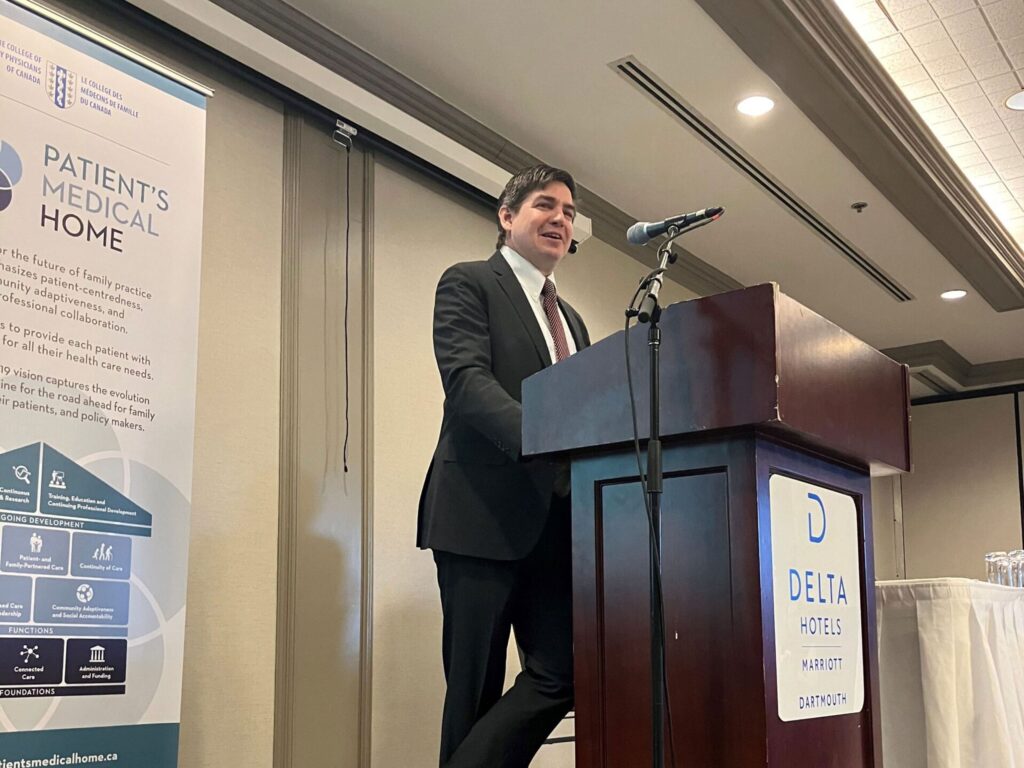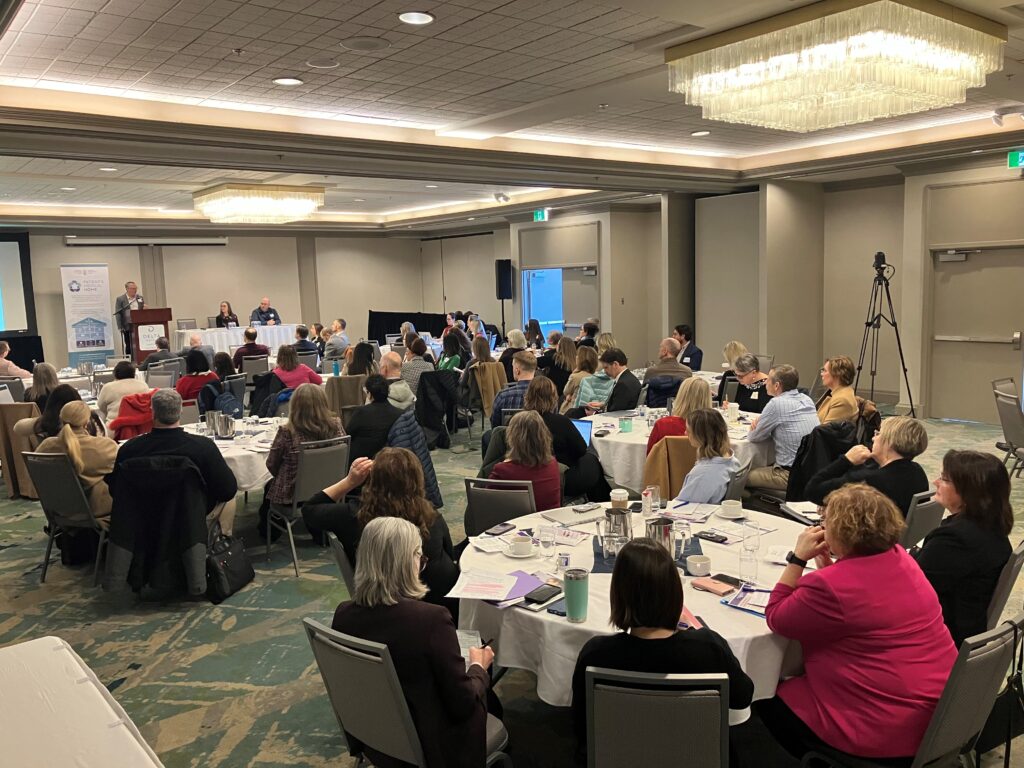On January 19, 2024, the College of Family Physicians of Canada (CFPC) welcomed nearly 100 family medicine and primary care leaders to Dartmouth, Nova Scotia, for the 2024 Patient’s Medical Home Atlantic Symposium. The event featured presentations and workshops focused on the adoption of the Patient’s Medical Home (PMH) vision in Atlantic Canada as a way to improve access to reliable, high-quality primary care.
Following the promising progress shared at the Symposium, the CFPC is looking forward to future developments in the Atlantic region, particularly the implementation of interprofessional care, electronic medical records, and other core elements of the PMH vision.
Highlights from PMH-aligned provincial programs included:
- Newfoundland and Labrador’s MyQ initiatives: led by physician champions and practice facilitation experts, these initiatives are designed to further quality improvement skills in physicians, and have improved access:
- Unassigned patients reduced from 36,000 to 200
- Third Next Available appointment times reduced from 16 days to six days
- Clinical wait times reduced from two hours to one hour
- Family Medicine New Brunswick, a team-based, patient-centred model of primary care, the program consists of 11 interprofessional teams including 56 physicians. More teams will be established in the coming months.
- Uses blended capitation model, encouraging longitudinal care and rostering
- Includes dedicated funding for allied health care professionals as well as dedicated overhead funding
- Prince Edward Island’s 17 Patient’s Medical Homes
- All PMHs feature family physicians, medical office assistants, clinic coordinators, and allied health professionals, and are supported by practice facilitators
- Talks are under way for establishing Patient’s Medical Neighbourhoods
- Nova Scotia’s 102 Collaborative Family Practice Teams
- These teams employ 457 family physicians and more than 300 allied health care professionals including nurse practitioners, registered nurses, social workers, and dieticians
The symposium brings into sharp focus the need for increased team support to make family practice more manageable and sustainable for the overworked family doctors who continue to serve as a foundation for Canada’s health care. It is critical that governments at all levels recognize the crisis in family medicine and contribute to solutions, through fair and equitable remuneration and reduced administrative burden (such as federal health forms).



